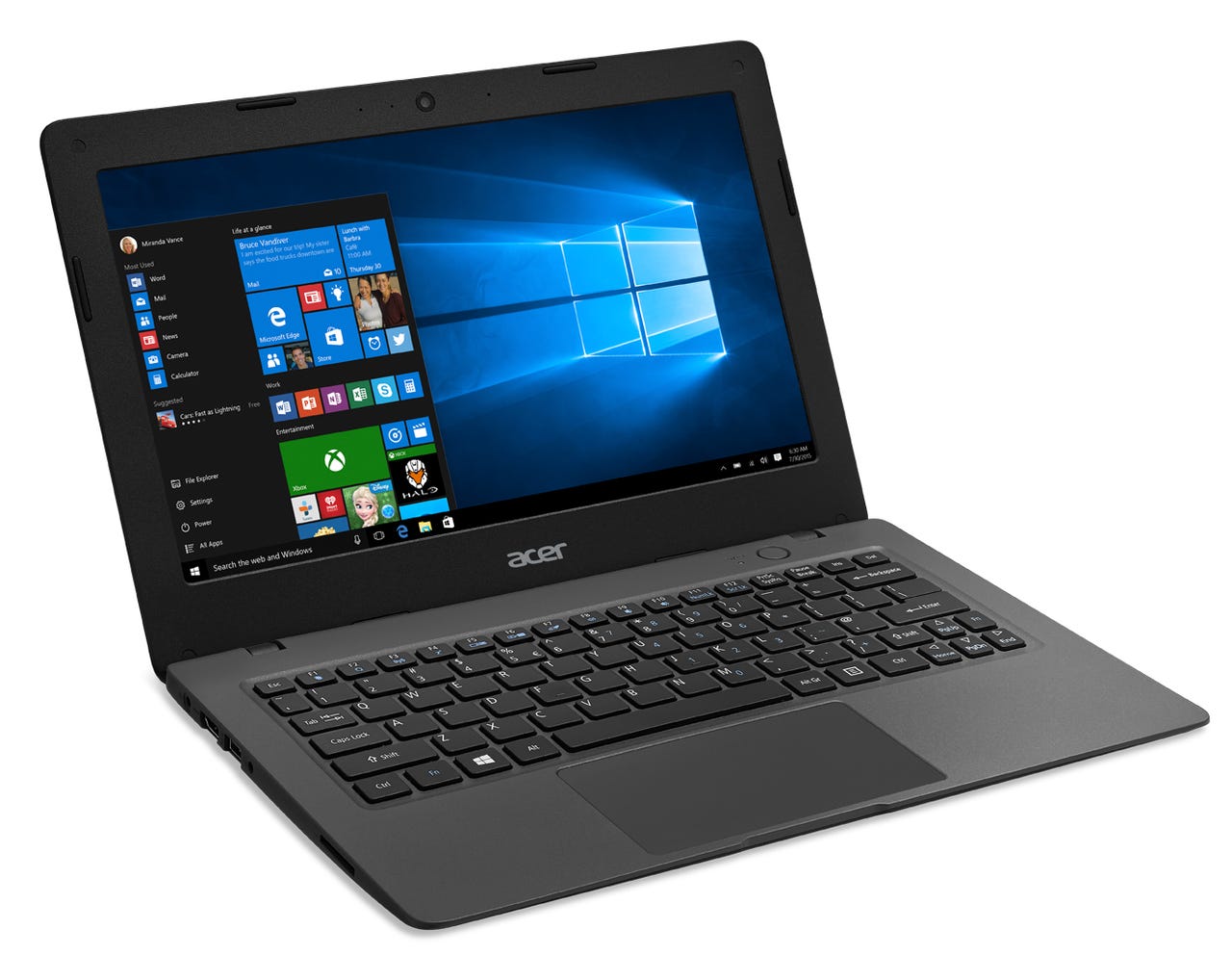Does Microsoft have what it takes to take on the Chromebook and the iPad?


Microsoft is expected to unveil Windows 10 Cloud next month, and leaked specs suggest that it is being positioned as a competitor to Google's Chromebook platform.
Must read: Apple's big $1,000+ iPhone gamble
Windows Central got its hands on an internal document that outlines the basic specs for Windows 10 Cloud devices, as well as drawing direct comparisons to Chromebook devices.
The basic specs are as follows:
- Quad-core (Celeron or better) CPU
- 4GB of RAM
- 32GB of storage (64GB for 64-bit)
- A battery with a capacity greater than 40 WHr
- Fast eMMC or SSD storage technology
- Optional pen and touch
The performance comparisons suggest that Windows 10 Cloud systems would have battery performance figures identical to that of a generic Chromebook, and boot and login times in the same ballpark.
Featured
The wording also makes it clear that these devices are aimed at the education market, and perhaps are designed to pave the way for more affordable versions of the Surface Book.
On paper at least, the specs are impressive. Doubly so because we're talking about Windows here, and not Google's Chromebook platform, which was designed from the ground-up to be fast and lightweight.
Another striking thing about the hardware specs for Windows 10 Cloud is how they're better than the baseline specs for Windows 10. It's clear that Microsoft is keen for Windows 10 Cloud to make a good impression as it prepares to go head-to-head with the Chromebook. This will encourage OEMs to build better systems (although on the flipside, it remains to be seen if people will be willing to pay for those systems).
But can Windows 10 Cloud unseat the Chromebook?
Much of the popularity in schools of Chromebooks has little to do with the hardware specs, and more to do with the low-cost, high-security, ease of administration, and the ease with which damaged or stolen Chromebooks can be replaced. Fast hardware and rapid boot times are nice, but these are low down the list of priorities for schools.
Who "wins" and who "loses" in this battle is going to come down to more than just the hardware specs.
But what about the iPad?
The increase in Chromebook adoption in schools has put a serious dent in iPad sales, and Apple's recent bout of price slashing makes it clear that the Cupertino giant isn't going to just sit back and let Google walk into schools without a fight.
Adding a third player into this fray just means more competition. And PC OEMs who are struggling with razor-thin margins might not have the stomach for any real fight. Both Windows RT and Windows Mobile have, in part, died because hardware makers gave up on them.
It's also a little bit unclear as to why Microsoft really cares about this market. On the grand scale of things, Chromebooks are a drop in the ocean, and while you could say the same for Macs or iPads, you can be sure that no one selling Chromebooks is banking on a 30+ percent profit margin like Apple is with its hardware.
Other things to watch out for
Also, let's not forget that tech is fast moving, and that it's unlikely that Google is going to sit still in this space. However, just like Microsoft, Google has to convince other OEMs that it's a platform worth supporting and fostering. And hardware makers are only interested in doing that if there's money in it.
I've seen theories that suggest that if students are exposed to a platform at school, they're more likely to use that platform in later life. Given the explosion in use of Android, iOS, and macOS, I'm not sure if this thinking holds true anymore (or whether it ever did).
But all that aside, if those hardware specs translate into real-world machines then Windows 10 Cloud is a space that everyone -- educators, consumers, and enterprise -- will need to keep a close eye on, because some interesting things could come from it.
Top Windows 10-powered alternatives to the MacBook Pro (2017 edition)
See also:
- Apple selling outdated 32-bit iOS apps that will soon stop working
- Is it time for high-end pros to dump the Mac?
- How to securely erase hard drives (HDDs) and solid state drives (SSDs)
- Hidden iOS 10.3 feature highlights apps that will soon become obsolete
- Top tech fitness gadgets to help you get fit and healthy
- Windows 10: Ten missed opportunities in the Creators Update (TechRepublic)
Microsoft bets big on DNA storage for digital data: